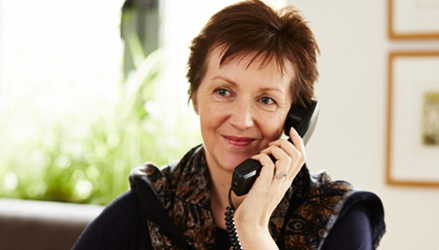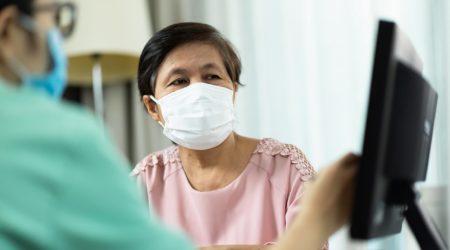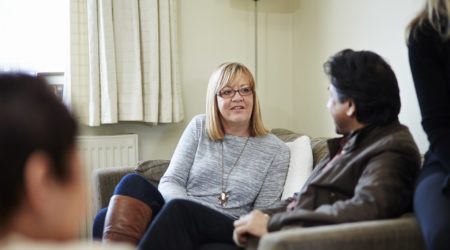Read all of our information about coronavirus
- Coronavirus
- What is the coronavirus (COVID-19)?
- How will coronavirus affect people with pancreatic cancer?
- Coronavirus vaccine and pancreatic cancer
- What does coronavirus mean for my treatment?
- Coronavirus information for people with symptoms of pancreatic cancer
- Information for families about coronavirus and pancreatic cancer
You can speak to our specialist nurses on our free Support Line with any questions about pancreatic cancer and coronavirus, and talk through your concerns. The Support Line is available for family and carers as well as people with pancreatic cancer.
If you live with someone with pancreatic cancer
You should still be careful to protect yourselves from coronavirus. For example, carry on washing your hands carefully, and you could still stay 2 metres from people you don’t live with. You could also take regular lateral flow tests – you can get these from pharmacies.
If you haven’t yet had the coronavirus vaccine, then get this.
Read more about coronavirus and staying safe.
If you or someone you live with gets symptoms of coronavirus
If you or someone else in the home get symptoms of coronavirus, try to arrange for the person with pancreatic cancer to stay with friends or family for 14 days. If the person with pancreatic cancer can’t stay somewhere else, try to keep 2 metres away from them as much as possible.
Symptoms of coronavirus and chemotherapy
If the person with pancreatic cancer is having chemotherapy and gets symptoms of coronavirus call the 24 hour emergency number their chemotherapy team will have given them.
If the person with pancreatic cancer isn’t having chemotherapy but gets symptoms of coronavirus, you should follow the advice from the NHS. If they don’t get better after 7 days or get worse, or they feel they can’t cope, call 111.
If you don’t live with the person with pancreatic cancer
If you are providing care to the person with pancreatic cancer, it is fine for you to visit them, as long as you don’t have symptoms of coronavirus. Think carefully how you can reduce the risk of coronavirus. For example, you can take regular lateral flow tests. Wash your hands with soap and water for at least 20 seconds when you arrive, and often while you are there.
Carers UK have lots of information about coronavirus for carers.
Making plans for supporting someone with pancreatic cancer
You may find it helpful to plan ahead with the person with pancreatic cancer, and to talk to family and friends about what’s needed.
The person with pancreatic cancer may rely on the support of family, friends and neighbours – for example, to help with getting shopping and medicines. You could try arranging a rota of who does what to share this out. There may also be local voluntary groups that can provide support – look on the COVID-19 Mutual Aid UK website to see if there’s a group near you.
If you are caring for someone with pancreatic cancer, it’s a good idea to make a plan in case you become unwell. Work out if there’s somebody the person with pancreatic cancer could stay with, or who might be able to care for them. If you need help with care but you’re not sure who to contact, or if you don’t have family or friends who can help, you can contact your GP, who should be able to help.
Note down the following key information, and share it with others:
- the name and address and any other contact details of the person you look after
- who you and the person you care for would like to be contacted in an emergency
- details of any medicine they are taking
- details of any ongoing treatment they need
- contact details for their GP and medical team
- details of any medical appointments they need to keep.
Carers UK also have information for people caring for others.
Speak to our nurses
If you have any questions about coronavirus and pancreatic cancer, you can speak to our specialist nurses on our Support Line.


Updated: September 2023




